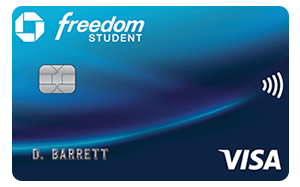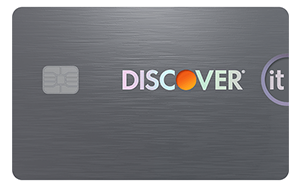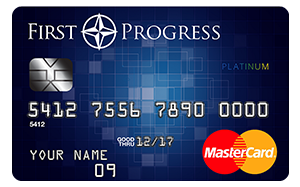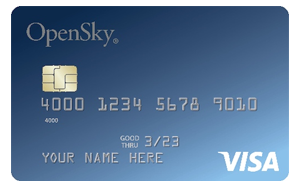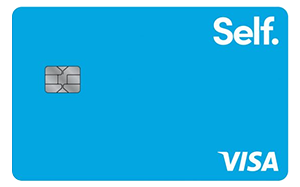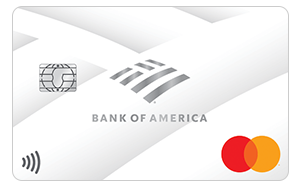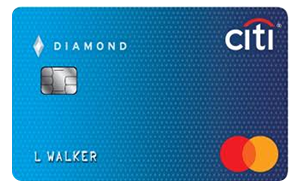Starting to build credit at 20 is a smart move that will ensure that you can take advantage of the benefits of good credit when you really need them, such as when you’re looking for a new apartment, car, or home.
The seven tips below will help you establish a firm financial footing. Building up a good credit history while you’re still young will allow you to seamlessly navigate your 20s and avoid the common pitfalls of early adulthood.
Table of Contents
- 1. Understand what credit accounts you can (and can’t) get at 20
- 2. Open a credit account designed for beginning borrowers
- 3. Start paying your own rent and utility bills
- 4. Always pay all your bills on time
- 5. Don’t overuse your credit cards
- 6. Focus on building good credit rather than building credit fast
- 7. Keep your credit accounts open as long as possible
1. Understand what credit accounts you can (and can’t) get at 20
If you’ve read other advice on how to build credit in your 20s, you’ve probably learned that to build credit, you need to open credit accounts, such as credit cards and loans.
This is good advice, and if 21 or older, you can legally get any loan or credit card that you want. (You’ll also have to be able to qualify for it, of course, and if you’re just starting out, that’s not a given.)
However, if you’re still 20, there are limits on what kinds of accounts you’re eligible for. If you apply for them, you might face automatic rejection.
This is important because each new credit application you submit will trigger a credit check called a hard inquiry, which will cause a small drop in your credit score. This will make it harder to get your next application approved.
To avoid establishing a negative credit history right off the bat by filing pointless applications, bear the following in mind:
- Credit cards have special restrictions before 21: Although the minimum age required to get a credit card is technically 18, special requirements apply to applicants under the age of 21. You’ll need to either have a cosigner or provide proof of income demonstrating that you can pay your monthly credit card bill by yourself. 1
- Lenders may reject you if you have no credit history: If you have no credit score and no information on your credit reports, then many lenders will reject your credit applications due to your insufficient credit history. This is especially likely if you have no income or savings either, which is more likely if you’re 20 (particularly if you’re still a student).
Thankfully, there are other types of credit accounts you can open at 20 years old. You can use them to start building credit even if you have no credit history.
2. Open a credit account designed for beginning borrowers
As mentioned, even if you haven’t built up a strong financial history yet, there are several credit accounts you can qualify for that are specifically designed for beginners.
Credit cards for beginners
Even if you can’t get another credit card yet, you may be able to qualify for a secured credit card. Secured cards require a security deposit and typically have a lower credit limit than unsecured credit cards. This makes them considerably easier to get than other cards.
These cards are a popular tool for building credit in your 20s—and potentially even earlier. If you want to start building credit at 18, for instance, they’re one of your only realistic options.
Below are the best starter credit cards (both secured and unsecured) that are currently on the market:
| Credit Card | Best For | Credit Score | Annual Fee | Welcome Bonus | |
|---|---|---|---|---|---|
| No Credit | 300–669 | $0 | |||
| Rewards | 580–739 | $0 | Cashback match | ||
| Travel | 580–739 | $0 | |||
| Visa | 580–739 | $0 | $50 Bonus | ||
| International Students | 580–739 | $0 | |||
| Credit Card | Best For | Credit Score | Annual Fee | Welcome Bonus | |
|---|---|---|---|---|---|
| Secured | 300–669 | $0 | Cashback Match | ||
| Unsecured (No Deposit) | 300–669 | $39 ($0 for the first year if you set up autopay) | |||
| Beginners | 300–669 | $49 | |||
| Students | 580–739 | $0 | Cashback match | ||
| No Annual Fee | 300–669 | $0 | |||
| High Approval Odds | 300–669 | $35 | |||
| Building Credit | 300–669 | $0 | |||
| Credit Card | Best For | Credit Score | Annual Fee | Welcome Bonus | |
|---|---|---|---|---|---|
| No Credit Overall | 300–669 | $0 | Cashback Match | ||
| Starters | 300–669 | $49 | |||
| Students | 580–739 | $0 | Cashback match | ||
| No Credit Check | 300–669 | $35 | |||
| No Annual Fee | 300–669 | $0 | |||
| Unsecured (No Deposit) | 300–669 | $75 for the first year ($48 after) | |||
| High Credit Limit | 300–669 | $39 ($0 for the first year if you set up autopay) | |||
| Instant Approval | 300–669 | $75–$99 the first year, then $99 annually | |||
| Beginners | 300–669 | $0 | |||
| Credit Card | Best For | Credit Score | Annual Fee | Welcome Bonus | |
|---|---|---|---|---|---|
| Secured Overall | 300–669 | $0 | Cashback Match | ||
| No Credit Check | 300–669 | $35 | |||
| Beginners | 300–669 | $25 | |||
| No Annual Fee | 300–669 | $0 | |||
| Bad Credit | 300–669 | $49 | |||
| Rebuilding Credit | 300–669 | $0 | |||
If you’re not ready for your own credit card, then you can also ask a parent or close friend over 21 to add you as an authorized user on their own credit card account. Becoming an authorized user can build your credit without requiring a major financial commitment, which makes it a popular option for building credit as a teenager or young adult in your early 20s.
Bank accounts don’t help you build credit
Your credit score is a reflection of your history of managing debts, and it doesn’t take into account how much money you have. It’s a good idea to open a bank account at age 20 (or even earlier), but although maintaining a healthy savings account can indirectly help your credit by making it easier to pay all your bills, neither checking or savings accounts directly impact your credit score.
Loans for beginners
Taking out a loan can be a good way of building credit for the first time. You usually need a credit score to get a personal loan (one of the most common types of loans), but some other loans come with low or nonexistent credit requirements to make them accessible to young people.
Here are a couple of examples of loans you can get at 20 years old, even if you have no credit score:
Credit-builder loans
These loans are more like credit-building tools than typical installment loans (such as auto loans or mortgages).
Your lender will still report all your payments to the credit bureaus, allowing you to establish a payment history, but you’ll only get access to the money after you’ve paid off the full loan. This means they’re less risky to lenders, just like secured credit cards, which makes them more accessible.
Student loans
If you’re in your early 20s, you might still be in school, and if so, you’re probably wondering whether taking out a student loan is a good move as far as your credit is concerned.
The good news is that just like any other type of loan, student loans will contribute to your credit score. They’re a common introduction to credit for young adults who need money for college. Federal student loans don’t usually require a credit check, which makes them easy to get in your 20s when you’re just starting out. 2
However, even though paying off student loans can help your credit, these loans do have a well-deserved reputation for saddling graduates with overwhelming debt. Consider paying for your education in other ways if you can, even if it means finding other ways to build credit (or waiting until you’re a little further into your 20s and eligible for more types of credit).
Financing a purchase
If you’re planning to make a major purchase in your 20s, then choosing the financing option at checkout will build up your credit history.
Common purchases that offer financing include:
- Furniture
- Automobiles (e.g., cars or motorcycles)
- Jewelry
- Home appliances
- Electronics (e.g., a phone or computer)
Just make sure to read the fine print of your purchase agreement. You should also only finance items you really need. Never go into debt just for the sake of building credit.
If you decide that financing isn’t for you, you can also apply for a retail credit card at your favorite store. These cards are often easier to get than traditional unsecured credit cards. 3
3. Start paying your own rent and utility bills
If you’ve moved out of your parents’ house and you’re covering your own living costs, then try to get your rent and house bills listed under your name.
Although these types of payments aren’t automatically included on your credit reports, you can build credit by paying your utility bills and rent by self-reporting those payments to the credit bureaus.
To do this, you’ll need to sign up for a bill-reporting or rent-reporting service. While many of these services cost a small fee, you can sign up for Experian Boost free of charge to get utility bills, cell phone payments, and even streaming service payments added to your Experian credit report.
Boost your credit for FREE with the bills you're already paying

Boost your credit for FREE with the bills you're already paying
- Experian Credit Report and FICO® Score updated every 30 days on sign in
- Instantly increase your credit scores for FREE with Experian Boost™
- Daily Experian credit monitoring and alerts
4. Always pay all your bills on time
Making a late payment or skipping a payment altogether on one of your bills might seem like no big deal, but it’ll cause serious damage to your credit. Even making a partial rather than full payment can hurt your score.
Negative items like late payments remain on your credit report for 7 years. If you miss a single payment after turning 20, it will continue to drag your credit down until you’re 27—a solid portion of your young life.
Set up payment reminders and do everything you can to ensure you pay all your bills on time and in full.
Also bear in mind that it’s not just missed credit card and loan payments that can harm your credit score. If you fall behind on other bills (e.g., utility, cable, or cellphone bills), they may be sent to a debt collector, which will cause serious and lasting damage to your credit score.
5. Don’t overuse your credit cards
When you get your first credit card, it can be tempting to spend up to your credit limit. However, spending too much on your revolving credit accounts (credit cards or store cards) can hurt your score by increasing your credit utilization rate, the percentage of your credit that you’re using.
Experts generally recommend keeping your credit utilization rate below 30%, but under 10% is ideal. Whatever you do, avoid maxing out your credit cards.
What will your first credit score look like when you’re 20?
There’s no universal starting credit score. You’ll get your first credit score once information is added to your credit report and you meet the minimum scoring criteria used by FICO and VantageScore. Over time, your score will change as this information is updated.
6. Focus on building good credit rather than building credit fast
Many young adults want to get their credit journey started as soon as possible and learn how to build credit fast. This is understandable—it’s satisfying to see quick results—but remember that your primary goal should be to establish a good credit score and a strong credit history rather than rushing to fill your credit report with any information you can.
Getting into more debt that you can pay off could land you a bad credit score in your 20s, which could take years to recover from.
In most ways, having bad credit is worse than having no credit at all. You can always add new positive items onto a thin credit file, but you can’t usually remove negative ones, and they won’t be deleted from your report for 7 years.
7. Keep your credit accounts open as long as possible
One of the most important things you can do for your credit going into your 20s is to open new credit accounts and keep them open for as long as you can.
Closing a credit card account can hurt your credit score by reducing your available credit, which, as we mentioned, will hurt your credit utilization.
It’s best to keep credit cards open, even if you’re not using them. The only exceptions are if you can’t afford the annual fees or if they’re tempting you to overspend.
The major benefit of starting to build credit as a young adult is that you’re giving your credit more time to age and improve. Having a long credit history is good for your credit score because it shows that you can reliably manage your debts over time.
Takeaway: To start building credit at 20, open your first credit accounts and practice managing them responsibly.
- It’s important to understand what types of credit accounts you can qualify for at 20 years old so that your applications don’t get rejected.
- Opening credit accounts is a key part of building credit. If you have no credit history, you can get a secured credit card or credit-builder loan or become an authorized user.
- Paying your own rent and bills can help you build credit if you report those payments to the credit bureaus using a service like Experian Boost.
- Make sure to always pay your bills on time and in full, avoid overspending on credit cards, and focus on making responsible financial choices.
- Starting young is important for building up good credit. To reap all the benefits of establishing credit in your 20s, keep credit accounts open as long as possible.




